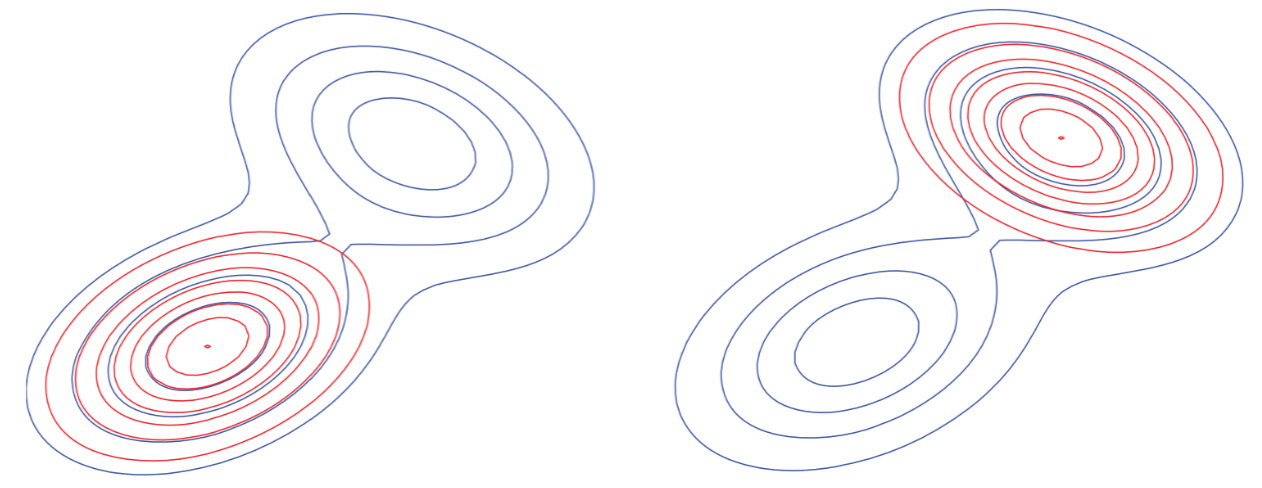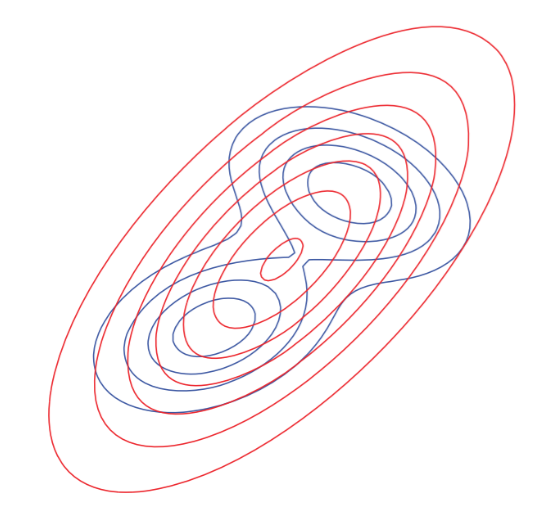Also called “information gain", is a measure of the difference between two probability distributions P and Q. It is not symmetric and does not obey the triangle inequality, thus is not a true metric.
KL divergence from Q to P:
In information theory,
- it is the amount of information lost when Q is used to approximate P
- it measures the expected number of extra bits required to code samples from P using a code optimized for Q
Proof for
Due to Jensen's inequality:
Note that
If P represents the "true" distribution of data, observations, or a precisely calculated theoretical distribution, while Q represents a theory, model, description, or approximation of P:
- Optimize KL(Q||P): zero-forcing, underestimate (better choice, get at least local optimum)

- Optimize KL(P||Q): zero-avoiding, overestimate (the output expectation value is not good at all)

Reference
Introduction to variational Bayesian methods: https://www.youtube.com/watch?v=HOkkr4jXQVg
KL Divergence: https://en.wikipedia.org/wiki/Kullback–Leibler_divergence